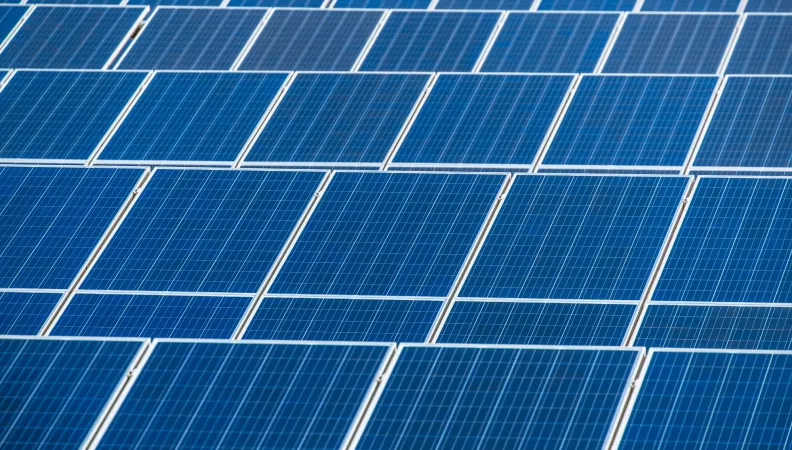Share the page
Proparco and the Asian Development Bank strengthen their partnership to support green energy generation in India
Project


-
Signature date
-
-
Location
-
India
-
Financing tool
-
Financing amount (Euro)
-
12000000
-
Financing details
-
Guarantee given of USD 14.25m
-
Customer
-
ASIAN DEVELOPMENT BANK
-
Type of customer
-
Company
-
Country of headquarters
-
Philippines
-
Project number
-
PIN1091
-
Environmental and social ranking
-
B+
-
Climate co-benefits
-
Project with climate co-benefits
This information is given at the time of signature, without prejudice to any developments in the operation/project.
Proparco is participating in the loan extended by the Asian Development Bank (AsDB) to finance a 200 MW solar power plant in northwest India. This project is implemented by ENGIE Group and marks a new key stage in the partnership between Proparco and AsDB. For Proparco, this risk participation is both an innovative operation and a strong commitment to renewable energy development in India.
Client presentation
The Asian Development Bank is a multilateral development bank founded in 1966. It is owned by 68 countries, including 49 in the Asia-Pacific region. It assists its member countries and partners in the Asia-Pacific region via loans, grants, technical assistance and investments in order to promote economic and social development in the Asia and Pacific regions.
Project description
Electro Solaire Private Limited (“ESPL”), a subsidiary of ENGIE Group, is leading a project for a 200 MWc photovoltaic solar power plant in a complex with a total installed capacity of 700 MWc in the north of Gujarat. This project is financed by a loan from the Asian Development Bank, part of which is covered by a risk subparticipation agreement with Proparco.
Project impact
The expected impacts of the ESPL project are as follows:
- The power plant is expected to supply an additional 440 GWh per year, which will contribute to improving access to electricity for some 130,000 people over the next 5 years;
- - 410,000 tCO2e should be avoided per year (10 million tCO2e throughout the lifespan of the project);
- While India is highly dependent on fossil fuels, the project should contribute to improving the country’s energy independence, in a context of sharp growth in electricity demand (electricity demand in India is expected to double by 2040);
- Over the next 5 years, the project is expected to support some 4,000 direct, indirect and related jobs in India.


